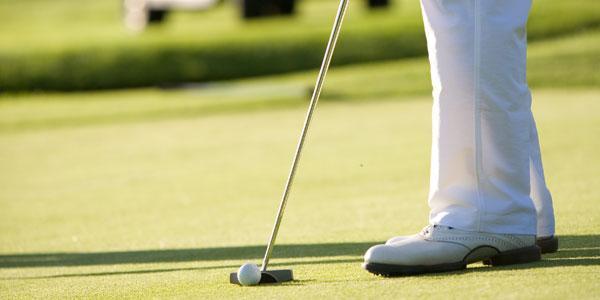
Overcoming Distractions in Golf
Golfers have many distractions that compete for their attention. Many fans hold top golfers in high regard for their ability to focus despite all the distractions they experience. Golf fans have unrealistic expectations that athletes can drop all distractions prior to walking onto the course and focus one hundred percent on their game.
Golfers are human and experience distractions due to personal issues (relationships, appearance demands, coaching conflicts, etc.) and performance issues (slumps, technique flaws, bad games, mistakes). The goal is not to eliminate all distractions but increase focus and managing distractions to maximize performance in tournaments.
Rory McIlroy is a 24 year-old Northern Irish professional golfer who competes on both the European and PGA Tours. McIlroy was ranked Number One in the world in 2012 winning the PGA Championship by a record eight strokes. McIlroy finished his 2012 season with four PGA Tour wins.
In 2012, McIlroy earned many awards for his play throughout the year including: PGA Player of the Year, PGA Tour Player of the Year, the Vardon Trophy, the Byron Nelson Award, the European Tour Golfer of the Year and the Mark H. McCormack Award (for leading the Official World Golf Ranking for the most weeks in the year (28 of 52 weeks). McIlroy is considered one of the most exciting young prospects in golf and has a lucrative 9-figure endorsement deal with Nike as well.
Despite all the accolades and his tremendous talent, McIlroy is winless in 2013 and his rank has dropped down to 6th in the world. McIlroy is battling through a major slump with only 5 top ten finishes out of the 16 events he played in 2013.
Many media outlets have pointed to distractions as the culprit for McIlroy’s poor play. There have been plenty of potential distractions for McIlroy in 2013: pressure of the top world ranking, demands to maintain endorsements, lawsuit against his former management company, adjusting to new equipment, and a highly publicized relationship with his girlfriend who is a professional tennis player.
McIlroy tried to deflect blame away from the distractions in his personal life, “Mechanically my golf swing … I fell into a couple of bad habits, and I was trying to work myself out of it. It affects mental issues as well. Golf is a game of confidence, and if you are confident it allows you to play better and freer with a free mind… definitely, nothing to do with equipment.”
Techniques to Deal With Distractions:
- Routines – Develop routines for competitions including the night before, the morning, pre round and preshot routines. Routines help focus your attention the process and what’s relevant to your game instead of distracting thoughts.
- Trigger Word – Choose a word “Refocus,” “Focus on the now”) that helps you refocus your attention to the task at hand. Select a trigger word that has meaning to you or something you are working on in practice.
- Be Aware– You want to notice when you are out of your normal preshot routine, catch yourself before you hit the shot, and refocus.
Related Sports Psychology Articles
- How Athletes Cope With Internal And External Distractions
- Social Approval And Distractions – Video
- Golf Podcast: How to Block out Life Distractions on the Course
*Subscribe to The Sports Psychology Podcast on iTunes
*Subscribe to The Sports Psychology Podcast on Spotify
Download a free sports psychology report to improve your mental game!
Learn more about our one-on-one mental game coaching.
Golfer’s Mental Edge

What’s the big sign that your mental game is the weak link in your golf game? When you can’t play consistently as well as when you play a practice or casual round–or your range game is way better than your game on the course. If you suffer from lack of focus, low self-confidence, poor composure or other mental game obstacles on the course, you can’t reach your true potential in golf.
The Golfer’s Mental Edge 2.0 Audio and Workbook program is ideal for any amateur, collegiate, junior, and tour professional golfer.
Golf coaches and instructors would also be wise to teach “The Golfer’s Mental Edge 2.0” principles to their players. This program is perfect for any golfer who wants to improve performance and consistency by managing their mind better on the course.

Hello! My name is Altramese, and I am interested in some resources to improve focus during competition, specifically intentional distractions. I have competed professionally as an amateur for many years, and have out averaged the nation twice in my career. Trying to come back to the game of bowling has been a major struggle because I’m older now, and have had several injuries. What might you suggest?
You might start with The Confident Athlete audio and workbook program.